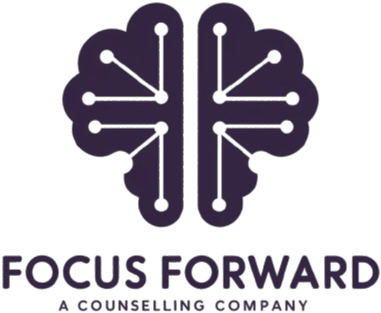Stress in Relationships – A Comprehensive Guide
Relationships can be both rewarding and tough. Stress is a big part of them, affecting how well they work and how happy everyone feels. This guide looks at stress in relationships. It covers the usual causes of stress in relationships, the signs and symptoms of relationship stress, and how stress changes things. It also talks about communication challenges, emotional stress in relationships, and outside factors. This guide aims to help you manage stress in relationships for a happier, stronger bond.
Key Takeaways
- Learn about common causes of stress in relationships, like poor communication and unmet expectations.
- Know the emotional and behavioral signs of relationship stress to tackle them early.
- See how stress affects relationships, including its impact on closeness and overall health.
- Find out about communication strategies and stress management techniques to handle relationship issues.
- Understand the perks of relationship counseling and therapy for stress management in beating ongoing relationship stress.
Understanding Stress in Relationships
Relationship stress is a complex issue that deeply affects a couple’s bond and well-being. It’s the emotional, physical, and mental strain that comes with being in a relationship. Knowing what causes this stress helps in building a stronger, more supportive relationship.
What is Relationship Stress?
Relationship stress means feeling tense, anxious, and pressured in a romantic or close relationship. It can show up in many ways, like not understanding each other, money problems, or not having enough time together. This stress can really affect how happy the relationship is and how well each person feels.
Common Causes of Stress in Relationships
- Financial Challenges: Money issues, like debt or not agreeing on finances, can cause a lot of stress and fights.
- Work-Life Balance: When work or other things take up too much time and energy, it can make the relationship feel off-balance.
- Communication Breakdowns: Not solving conflicts, not listening well, and not sharing feelings can lead to stress.
- Unmet Emotional Needs: Feeling ignored, not getting the support you need, or feeling like you’re not compatible in emotional needs can be stressful.
- Major Life Transitions: Big changes, like moving, having a family, or health issues, can add stress to a relationship.
If you are looking for couples counselling or individual counselling to deal with stress related to your relationships, click here to book now!
Knowing what causes relationship stress helps couples find ways to deal with it and strengthen their bond. By tackling these issues, couples can aim for a happier and more supportive relationship.
Stress in Relationships – A Comprehensive Guide
Dealing with stress in relationships can feel tough, but you and your partner can beat these hurdles. This guide offers many ways to manage stress in relationships, reduce stress in relationships, and deal with stress in relationships. It covers techniques and methods to keep your relationship strong and happy.
One important way to handle stress is through open communication. Talking openly and honestly with your partner helps you find out what’s causing stress. Then, you can work together to fix it. This might mean setting boundaries, making compromises, or getting help from a professional.
| Stress Management Strategies | Description |
|---|---|
| Practicing Mindfulness | Mindfulness, like meditation and deep breathing, helps you and your partner stay in the moment. It lessens stress’s impact. |
| Engaging in Stress-Relieving Activities | Doing hobbies, exercising, or just taking time for yourselves can help reduce stress. It also makes your relationship stronger. |
| Seeking Social Support | Talking to friends, family, or a therapist can give you emotional and practical support when you’re stressed. |
Using these strategies, you and your partner can overcome relationship stress and reduce stress in relationships. This way, you can manage stress in relationships better. It will make your bond with each other stronger.
For more strategies, check out our blog here about 10 effective stress management techniques!
“Stress in relationships is inevitable, but how we manage it can make all the difference in the world.”
Signs and Symptoms of Relationship Stress
Relationships can be tough, and knowing the signs of stress is key to keeping things healthy. If you’re feeling emotional stress in relationships or see signs of stress in relationships, pay attention. These signs show it’s time to make some changes.
Emotional and Physical Indicators
Stress in relationships shows up in many ways, emotional and physical. Emotional signs include:
- Persistent feelings of irritability, anger, or resentment
- Increased anxiety, depression, or emotional detachment
- Difficulty expressing emotions or communicating effectively
Physical symptoms can also appear, like:
- Headaches, muscle tension, or fatigue
- Changes in appetite or sleep patterns
- Weakened immune system or susceptibility to illness
Behavioral Changes
Stress effects on couples can also show in how you act. Watch for:
- Increased conflict, avoidance, or withdrawal from the relationship
- Dissatisfaction with intimacy or a decline in sexual activity
- Disengagement from shared activities or hobbies
- Substance abuse or other unhealthy coping mechanisms
These changes can make things worse, showing why it’s important to act early.
By spotting the many signs of stress in relationships, couples can start fixing problems. This helps lead to a happier and more united partnership.
Impact of Stress on Relationships
Stress can deeply affect the health and dynamics of a relationship. If not managed, stress can weaken the bond between partners. This leads to challenges that test even the strongest relationships.
Stress mainly affects relationships by changing how people communicate. When stressed, it’s hard for couples to share their feelings. This leads to misunderstandings and conflicts, damaging trust. This can start a cycle of stress that’s hard to stop.
Stress also harms physical and emotional closeness in relationships. It can make people less interested in sex and less able to feel connected. This makes couples feel alone and unhappy.
| Relationship Aspect | Impact of Stress |
|---|---|
| Communication | Difficulty expressing thoughts and feelings, increased conflicts, and a breakdown in trust |
| Intimacy | Decreased libido, difficulty with physical and emotional connection, and a sense of disconnection |
| Overall Dynamics | Strain on the partnership, increased tension, and a general sense of dissatisfaction |
It’s important to deal with stress to keep a relationship strong and happy. By understanding stress’s effects and managing it, couples can build a stronger bond. This bond can handle life’s challenges better.
“Stress is a silent relationship killer, slowly eroding the very foundation that once brought two people together. But with awareness and action, couples can overcome its impact and emerge stronger than ever.”
Communication and Stress Management
Good communication is key to handling stress in relationships. Talking openly and with empathy helps you and your partner get through tough times. It also builds a deeper connection. By using smart ways to talk, you can manage stress and get closer.
Effective Communication Strategies
Communication is vital for dealing with stress in relationships. Here are some good ways to talk:
- Active Listening: Pay full attention to your partner, without distractions. Try to understand their view and accept their feelings.
- Effective Conflict Resolution: Deal with disagreements in a positive way, focusing on the issue, not each other. Talk about your feelings and what you need using “I” statements.
- Emotional Transparency: Share your thoughts and feelings openly, even if it’s hard. This builds trust and closeness in your relationship.
- Compromise and Collaboration: Work together to solve problems. Be ready to listen to your partner’s side too.
Using these tips, you and your partner can handle relationship stress better and grow closer.
| Communication Strategy | Description |
|---|---|
| Active Listening | Pay full attention to your partner, without distractions. Try to understand their view and accept their feelings. |
| Effective Conflict Resolution | Deal with disagreements in a positive way, focusing on the issue, not each other. Talk about your feelings and what you need using “I” statements. |
| Emotional Transparency | Share your thoughts and feelings openly, even if it’s hard. This builds trust and closeness in your relationship. |
| Compromise and Collaboration | Work together to solve problems. Be ready to listen to your partner’s side too. |
“Effective communication is the foundation of a healthy and resilient relationship, especially during times of stress.”
Coping Mechanisms for Relationship Stress
Dealing with relationship stress can feel tough, but there are ways to make it easier. You and your partner can grow stronger together by using the right strategies. This part will cover both personal and shared ways to handle stress well.
Individual Coping Strategies
Personal self-care is key when facing coping with relationship stress. Here are some ways to help yourself:
- Try stress-lowering activities like meditation, yoga, or mindfulness exercises
- Keep active with regular exercise to ease tension and lift your mood
- Focus on getting enough sleep and eating well
- Look for emotional support from friends or a therapist
- Write in a journal to work through your feelings
Couple-Based Coping Techniques
For couples, working together to manage relationship stress relief can bring you closer. Try these methods:
- Talk openly and without judgment to find out what’s causing stress and how to fix it
- Make plans together to tackle stressful issues
- Make time for activities you both enjoy, like going on dates or trying new hobbies
- Consider seeing a couples therapist for advice on coping with relationship stress and improving your relationship
Using both personal and shared coping strategies for relationship stress can help you stay strong. This way, you can face challenges together and keep your relationship healthy and strong.
Stress and Intimacy
Keeping a strong and loving relationship is key, but stress can make it tough. The balance between stress and intimacy is important. Stress can really affect how close you feel to your partner.
High stress effects on intimacy can make you not want sex as much, make it hard to get excited, and feel far apart. This can start a cycle where not being close makes stress and tension worse in the relationship.
To keep the spark alive, it’s key to handle stress well in your relationship. This might mean doing things on your own to relax or working together to talk and bond. Sharing activities that help you both chill out can also help.
| Factors Affecting Intimacy | Impact on Intimacy |
|---|---|
| Chronic Stress | Decreased sexual desire, difficulty achieving arousal, and emotional distance |
| Lack of Quality Time Together | Feelings of disconnection and a diminished sense of emotional closeness |
| Poor Communication | Difficulty expressing needs, concerns, and desires, leading to misunderstandings |
Putting stress and intimacy first in your relationship is important. With good strategies to handle stress, you and your partner can keep a deep, rewarding connection, even when things get tough.
“Intimacy is not just about sex. It’s about the emotional connection and vulnerability you share with your partner.”
Seeking Professional Help
Sometimes, you might need help to deal with relationship stress. This part talks about the good things about relationship counseling and stress management therapy. It will guide you on when and how to get professional help. This ensures your relationship stays healthy and happy.
Relationship Counseling
Relationship counseling can really help couples with stress and communication problems. A therapist can find out what’s causing your stress, teach you how to solve conflicts, and help you feel closer again. You’ll learn to tackle challenges better and make your relationship stronger.
Therapy for Stress Management
Getting therapy for relationship stress can also be very helpful. A therapist can give you ways to cope, teach you self-care, and help you handle stress better. This can make you feel stronger and more understanding in your relationship.
“Seeking professional help is a sign of strength, not weakness. It’s about taking control of your relationship’s well-being and investing in a brighter future together.”
There’s no shame in asking for professional help when you’re dealing with relationship stress. It shows you care about your partner and want a strong relationship.
Maintaining a Healthy Relationship
Keeping your relationship safe from stress is key to a strong bond. By using stress prevention strategies, you and your partner can make your relationship stronger and happier. Let’s look at ways to keep your relationship healthy and reduce stress.
Stress Prevention Strategies
Healthy routines and rituals can help prevent stress in relationships. Here are some tips:
- Make time for each other without distractions or tasks.
- Start a regular exercise routine you both enjoy, for your health and happiness.
- Talk mindfully, listen well, and share your feelings and needs clearly.
- Do things that help you relax, like yoga, meditation, or a walk together.
- Take care of yourselves and support each other to stay happy and full of energy.
Using these stress prevention strategies for relationships builds a strong base of understanding and support. This helps you keep your relationship healthy through life’s ups and downs.
“The greatest weapon against stress is our ability to choose one thought over another.” – William James
Remember, keeping a relationship healthy is a journey. By tackling stress together, you and your partner can create a strong bond that lasts through life’s challenges.
Conclusion
As we end this guide on stress in relationships, let’s think about what we’ve learned. Understanding what causes relationship stress helps you deal with challenges in your partnership. This includes things like poor communication and outside pressures.
Knowing the signs and symptoms of relationship stress is key. These can be emotional or physical. Then, using coping strategies can make you and your partner stronger. This leads to a happier, more fulfilling relationship.
With the right tools and mindset, you can beat relationship stress. Focus on good communication and use effective stress management techniques. This will help you and your partner stay close and build a strong bond.
FAQ
What is relationship stress?
Relationship stress is the emotional, mental, and physical strain that can happen in a partnership. It comes from things like communication problems, money issues, work-life imbalance, and not meeting expectations.
What are the common causes of stress in relationships?
Common causes include communication issues, money worries, different values or goals, work-life imbalance, life events, and unresolved conflicts or resentments.
How can I recognize the signs of stress in my relationship?
Signs of stress include feeling irritable, anxious, or depressed, having trouble sleeping, and feeling disconnected or resentful. Changes in behavior like avoiding conversations, being defensive, or arguing a lot can also show stress.
How does stress impact a relationship?
Stress affects communication, emotional closeness, physical touch, and how the relationship works. If not managed, it can lead to more arguing, resentment, and a loss of trust and safety.
What are effective communication strategies for managing stress in a relationship?
Good communication means listening well, sharing feelings and needs with empathy, finding common ground, and solving problems together. Talking openly and with understanding helps couples deal with stress better.
What are some coping mechanisms for relationship stress?
Coping strategies include taking care of yourself, managing stress, and getting support from others. For couples, working together on problems, doing things together, and getting help from professionals like counselors can also help.
How can stress impact intimacy in a relationship?
Stress can deeply affect intimacy. It can lower desire, make it hard to get aroused, and make partners feel distant from each other.
When should I seek professional help for relationship stress?
If you’re not handling stress on your own and it keeps up, or if communication is really bad, or if serious issues are affecting your relationship, getting help from professionals like counselors is a good idea.
How can I prevent and manage stress in my relationship?
To prevent stress, keep routines healthy, talk openly, support each other, and do things that relax you together. Keeping a good balance between work and life, handling your own stress, and getting help when needed can also help.







